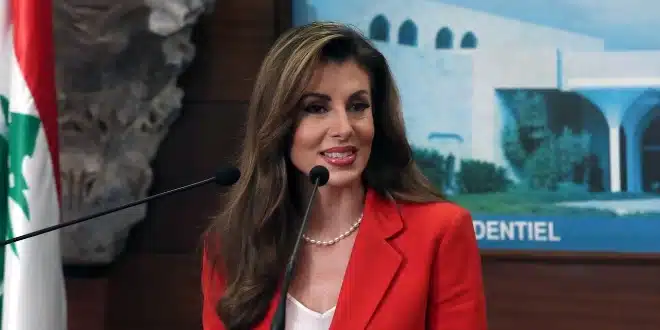During a recent visit to Lebanon, U.S. Deputy Special Envoy for Middle East Peace, Morgan Ortagus, conveyed a firm message regarding Hezbollah’s involvement in the Lebanese government. In meetings with President Joseph Aoun and Prime Minister-designate Nawaf Salam, Ortagus emphasized that the United States considers Hezbollah’s participation in the new government a “red line.” She expressed gratitude to Israel for its actions against Hezbollah and underscored the U.S. commitment to preventing the group from influencing Lebanon’s political landscape.
In response, President Aoun’s office issued a statement clarifying that Ortagus’s remarks reflected her personal views and did not represent the official position of the Lebanese presidency. The statement emphasized Lebanon’s sovereignty in making decisions about its internal affairs.
Hezbollah and its allies reacted strongly to Ortagus’s statements. Senior figures within the group reiterated Hezbollah’s significant role in Lebanon’s political and social spheres, rejecting external interference in the country’s governance. They emphasized that Hezbollah represents a substantial segment of the Lebanese population and should not be excluded from the political process.
Prime Minister-designate Nawaf Salam faces the complex task of forming a new government amid these external pressures and internal divisions. The U.S. stance adds another layer of complexity to Lebanon’s sectarian-based political system, where power-sharing among various religious and political groups is delicate. Salam’s efforts to balance these interests while addressing international concerns will be crucial in the coming weeks.
Ortagus’s visit and statements occur against a backdrop of heightened regional tensions. Recent Israeli airstrikes in Lebanon and ongoing disputes over border demarcations have further strained relations. The U.S. continues to support Israel’s security concerns while advocating for Lebanon’s stability and sovereignty, creating a delicate diplomatic balancing act.
The U.S. envoy’s recent visit to Lebanon has spotlighted the intricate interplay between domestic politics and international diplomacy. As Lebanon endeavors to form a new government capable of implementing necessary reforms and ensuring stability, it must navigate external pressures and internal dynamics to achieve a cohesive and representative administration.


